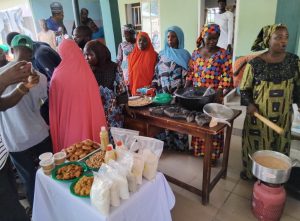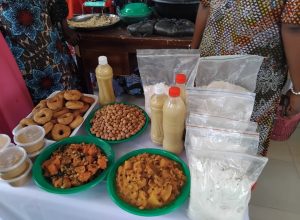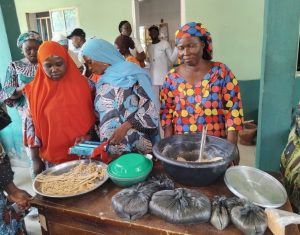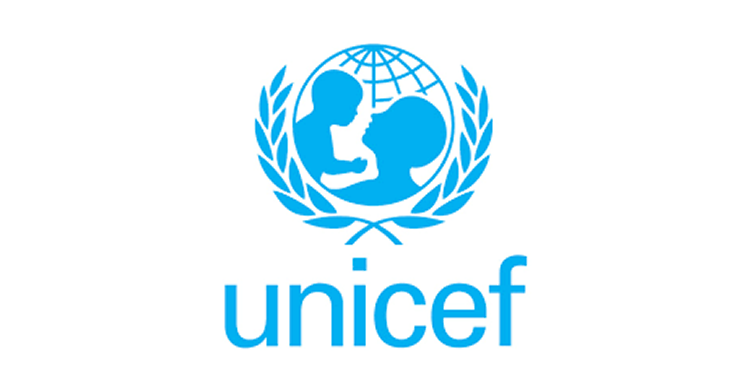The United Nations Children Fund (UNICEF), has introduced an affordable means of getting balance meals in homes to prevent malnutrition and reduce child poverty.
READ ALSO: Diabetes can be managed, prevented with appropriate diets – Nutritionist
One of the centres providing the services is in Kalargu Health Care Centre, in Katltungo Local Government Area of Gombe State, where the UNICEF introduced the special breed Orange Flesh Sweet Potato to the people of the area.
Membership of the project consist mainly of mothers learning how to make complementary food for babies from six months to two years, as well as other women interested in providing balanced diet foods for their households.
It is achieving that through its Complementary Feeding Project, specifically designed for children who are breast fed for six months and now ready to eat complementary foods alongside breast milk for up to two years.

The centre in Kalargu is promoting various options and varieties of complementary foods for the children six months and above, as well as for the entire households to pick from.
At the centre, caregivers, women and mothers are being provided with sufficient knowledge and skills on how to grow the all-purpose plant and use them to have the needed nutritious food.
The magic tuberous root, the yellowish underground tuber, is said to be rich in an antioxidant called beta carotene, which is very effective at raising blood levels of vitamin A, particularly in children between the ages of one to four.
According to UNICEF, “The move is to lower morbidity and mortality rates, diminish the risk of chronic diseases, and facilitate overall better development of the child.”
Some of the beneficiaries who spoke with Voice of Nigeria all expressed their gratitude to UNICEF for introducing them to the variety they now had before them.
Mrs. Rahab Buba, one of the beneficiaries of the project in Kalargu, says she had learnt to combine different foodstuff to get a balanced diet, listing flours from Guinea Corn, Sweet Potato, millet, rice and Soya Beans, which she mixes into flour and used it to make tuwo.
She called on parents, especially mothers to embrace the new technique to have a healthy family.
Mrs. Ramatu Zubairu, one of the members in the project and a beneficiary, said because of the passion she had for planting the potato, her children have equally adopted that lifestyle and are now competing amongst them on whose planting was better.
She said they were transplanting the potato seedlings in bags (sacks), tires, plastic containers and every available item they could get.

Mrs. Zubairu said, despite the initial set back of water shortage, she went all out to get help from a benevolent member of their community, who had a borehole in his house and had provided them with a hose, which they were now using to draw water to their homes to water the plants.
On the benefit of the potato flour, Mrs. Zubairu said she had seen the full benefit on her child, who was demonstrating exceptional qualities compared to her siblings, due to the knowledge gained from the complementary feeding project.
She said she had seen a display of exceptional intellectual abilities in her daughter, after consuming the complementary food.
Aside from the benefit of the Orange Flesh Potato to children, Mrs. Olivia Joida, said she had also enjoyed the full benefit of the complementary food, because it had increase her vision, because of the abundance of Vitamin A in the potato.
She said the health status of her family had greatly increased, with no complaint of sicknesses like before.
Mrs. Joida called on other members of the community to embrace the Orange Flesh Potato, plant it and even turn it into a business venture, because her family was a clear testimony of the benefits of the special potato.
She also complaint of the difficulty she encountered watering the plant, therefore calling for interventions of the government and relevant authorities in the provision of water to enable them cultivate the potato in the dry season.
“The introducing the Complementary Feeding Project in all the 10 wards of Kaltungo Local Government Area, specifically to provide optimal nutrition for a child when it begins complementary feeding after the six months exclusive breast feeding.”

The Nutrition Specialist of UNICEF, Bauchi Field Office, Mrs. Philomena Irene, said the complementary food used in the demonstration of the nutritious food comprise of locally available and affordable, as well as homegrown ones by the women right in their backyard.
“This also the place where UNICEF is promoting the orange pot sweet potato cultivation. We have mothers here who have orange flesh potato vines in their backyard, which they are growing along with other vegetables like okra, spinach, cabbage and tomatoes, so that children can take variety of food that are nutrient dent, that are fresh and also that are palatable for their taste,” said Mrs. Irene.
The Facility Manager of Kalargu Complementary Feeding Project of UNICEF, Mrs. Ladi Abdullahi, said the project began by sensitizing the beneficiaries on the orange-flesh potato, as a root tuber rich in vitamin A.
Mrs. Abdullahi said UNICEF was introducing the orange–flesh potato so as to provide options for rich foods in their homes, because most of the foods found in the area do not contain.
“Not by consuming it alone, but by making flour out of it, which they can now introduce into different recipes that you will see later on,” said Mrs. Abdullahi.
She said lack of sufficient water had been a challenge in planting the potato, but that they had opted for planting them in sacks, because they cannot dry on time, saying the method had led to higher production of potatoes by the women.
Mrs. Abdullahi said the potato could be either be consumed raw, cooked or even dried and processed into a powder form for easy application or addition into other locally available food, like guinea corn flour, millet and maize four to get a balanced diet tuwo.
She said the project had so far gained 75% acceptance, after others, who resisted the project at first, were convinced to join it later after seeing positive results, saying she goes round to sensitize other women to see the benefits of adopting the complementary feeding for their children and the entire family.
UNICEF said the project is expected to be scaled up in all local government areas of Nigeria.

